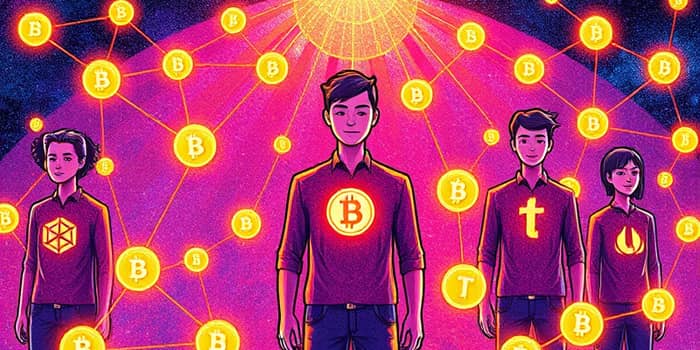As the digital world evolves at breakneck speed, our identities—once tethered to usernames and passwords—stand at the cusp of a radical transformation. By 2025, traditional verification methods can no longer withstand the sophistication of modern cyber threats. Enter NFTs and DeFi: two innovations poised to empower individuals and redefine how we manage, secure, and monetize our digital identities.
Understanding the Current Digital Identity Landscape
Today, most of us rely on centralized systems—usernames, passwords, and third-party authentication—to access online services. These systems, however, suffer from a fatal flaw: a single point of failure. Data breaches, identity theft, and unauthorized tracking are now daily headlines. In response, blockchain technology offers an alternative: a decentralized network where identity data is not stored on one server but distributed across countless nodes.
Non-fungible tokens (NFTs) have catapulted from niche art collectibles into a promising tool for secure identity verification. Despite a slight market contraction, the NFT sector still generates hundreds of millions in revenue, proving its resilience and adaptability. More importantly, NFTs carry unique identifiers that cannot be replicated, making them ideal vessels for individual credentials and personal histories.
NFT-Based Identities: Empowering Individuals
NFT-based digital identities embed personal credentials—such as academic diplomas, professional certifications, and medical records—within unique tokens. Owners retain full control of these tokens, granting and revoking access as they see fit. This shift from institution-held data to absolute ownership and control signals a new era of user sovereignty.
By using digital wallets to manage NFTs, individuals eliminate reliance on single institutions and mitigate risks associated with centralized data storage. At the same time, cryptographic proofs ensure that credentials are genuine without exposing sensitive personal information. This balance fosters both secure verification and personal privacy in every transaction.
- Verification of personal achievements and credentials
- Secure, fraud-resistant identity verification
- Enhanced trust in peer-to-peer interactions
- Empowerment through decentralized applications
Benefits of Blockchain-Powered Digital Identities
Transitioning to blockchain-based identity systems yields transformative advantages. First, immutable and tamper-proof record-keeping dramatically reduces the risk of fraud. Second, decentralized storage eliminates single points of failure. Finally, selective disclosure allows individuals to share only the data necessary for a given transaction, minimizing exposure.
Integration with DeFi: Unlocking New Possibilities
Decentralized finance (DeFi) leverages smart contracts to automate financial agreements, and when paired with NFT-based identities, it creates a synergy unlike anything seen before. Borrowers can use identity-backed NFTs as collateral, while lenders gain confidence through on-chain credential verification.
- Collateralized lending with identity tokens
- Automated risk assessment via credential checks
- Fundraising and tokenized equity offerings
- Financial products with embedded identity layers
Challenges and Considerations
Despite its promise, the NFT-DeFi identity model faces hurdles. Technical complexity can overwhelm newcomers, requiring intuitive interfaces or trusted intermediaries. Reliable oracles are needed to feed real-world data onto the blockchain, and regulatory frameworks must catch up to ensure compliance without stifling innovation.
Moreover, balancing anonymity with accountability is crucial. While zero-knowledge proofs can confirm credentials without revealing personal data, regulators may demand additional transparency. Achieving this equilibrium between privacy protection and legal compliance will determine the technology’s long-term success.
Looking Ahead: Emerging Trends and Future Directions
The road ahead is bright. We anticipate tighter integration of NFT identities with legacy systems—allowing seamless transitions for governments and enterprises. Sectors like healthcare, education, and governance stand to gain immensely from verifiable credentials stored on-chain, reducing bureaucracy and enhancing access.
Furthermore, as cross-chain interoperability protocols mature, users will navigate multiple blockchain ecosystems with a single identity. Standardized frameworks for identity tokens will emerge, fostering collaboration among platforms and reducing fragmentation. Ultimately, the convergence of NFTs and DeFi heralds a future where individuals possess unprecedented digital autonomy and financial inclusion.
By embracing these innovations today, we lay the groundwork for a world where identity is not a vulnerability but a source of empowerment. The union of NFTs and DeFi offers a compelling vision: a decentralized digital realm where trust is algorithmic, privacy is preserved, and every individual holds the keys to their own future.
References
- https://www.blockchainappfactory.com/blog/why-blockchain-digital-identity-solutions-are-key-to-business-security-2025/
- https://osl.com/en/academy/article/what-is-the-future-of-nfts-exploring-the-next-big-use-cases-beyond-art
- https://research.aimultiple.com/nft-use-cases/
- https://www.innoviusresearch.com/blog/metaverse/nft-and-the-new-era-of-digital-identity-verification/
- https://www.rockitcoin.com/what-is-an-nft/
- https://nftnewstoday.com/2024/12/24/nfts-in-2025-key-trends-innovations-and-market-shifts
- https://www.investopedia.com/non-fungible-tokens-nft-5115211










